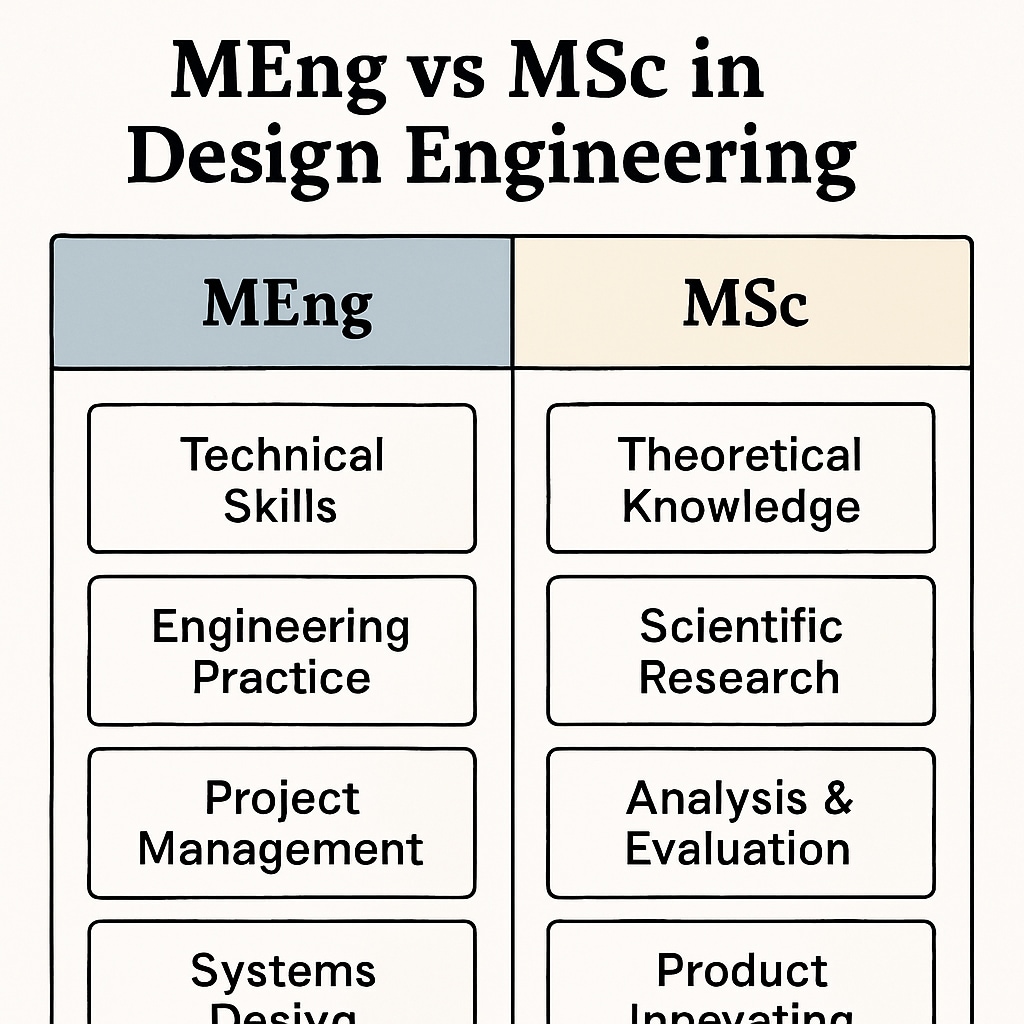The journey toward a successful career in design engineering often begins during the K12 educational stage. By considering future aspirations such as pursuing a master’s degree (MEng or MSc) and engaging in detailed career planning, students can strategically position themselves for long-term success. This article delves into how K12 course planning can impact career opportunities, the differences between the MEng and MSc degrees, and how students can select the educational path that best aligns with their goals.
Building the Foundation for Design Engineering Careers
For students who aspire to become design engineers, the K12 stage is a crucial period for developing foundational skills. Courses in mathematics, physics, and computer science are particularly important because they provide the technical knowledge necessary for higher education in engineering. In addition, extracurricular activities such as robotics clubs and coding competitions can offer practical experience and enhance problem-solving skills.
It is also beneficial for students to explore early career options and understand how different engineering disciplines align with their interests. For example, design engineering often focuses on creating innovative solutions to technical challenges, blending creativity with technical expertise. This preparatory stage enables students to transition smoothly into university-level programs.

MEng vs MSc: Key Differences and Career Impacts
When students advance to higher education, they are often faced with choosing between different master’s degree options. In the field of design engineering, the two most common pathways are the Master of Engineering (MEng) and the Master of Science (MSc). While both degrees provide advanced training, they differ in focus and career implications.
- MEng: Typically more practice-oriented, the MEng degree emphasizes applied engineering skills and prepares students for industry-focused roles. It is often preferred by those seeking careers in manufacturing, product design, or technical project management.
- MSc: With a stronger academic and research focus, the MSc degree is suited for students interested in pursuing doctoral studies or careers in research and development. It often emphasizes theoretical knowledge and advanced analytical techniques.
Understanding these distinctions is critical for students who want to tailor their educational path to their career aspirations. For example, an aspiring design engineer interested in hands-on projects may prefer the MEng, while someone drawn to innovation and academic research might choose the MSc.

Strategic K12 Planning for Future Success
To make informed decisions about higher education and career paths, K12 students should develop a strategic approach to their studies. Some actionable steps include:
- Course Selection: Prioritize STEM subjects such as calculus, physics, and programming, which are essential for design engineering degrees.
- Skill Development: Engage in activities that build teamwork, critical thinking, and technical skills, such as engineering internships or science fairs.
- Career Exploration: Research potential roles in design engineering, such as product design specialist or systems engineer, and identify skills required for those positions.
- University Research: Investigate universities offering MEng and MSc programs, focusing on curriculum, faculty expertise, and internship opportunities.
By proactively planning their educational trajectory, students can ensure they are well-prepared for both academic and professional challenges.
Final Thoughts
The choice between an MEng and MSc degree in design engineering, combined with thoughtful career planning during the K12 stage, can significantly influence a student’s future opportunities. By understanding their interests, strengths, and long-term goals, students can make informed decisions that set the stage for a rewarding career in engineering. As a result, early preparation and strategic planning remain essential for success.
To learn more about engineering careers and educational paths, explore external resources such as Engineering on Wikipedia and Engineering on Britannica.


